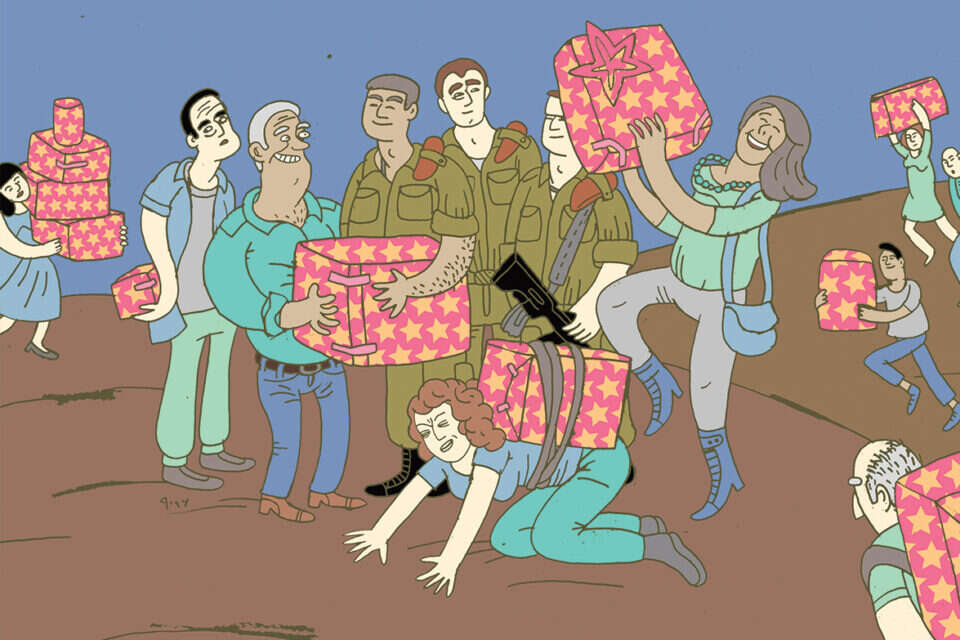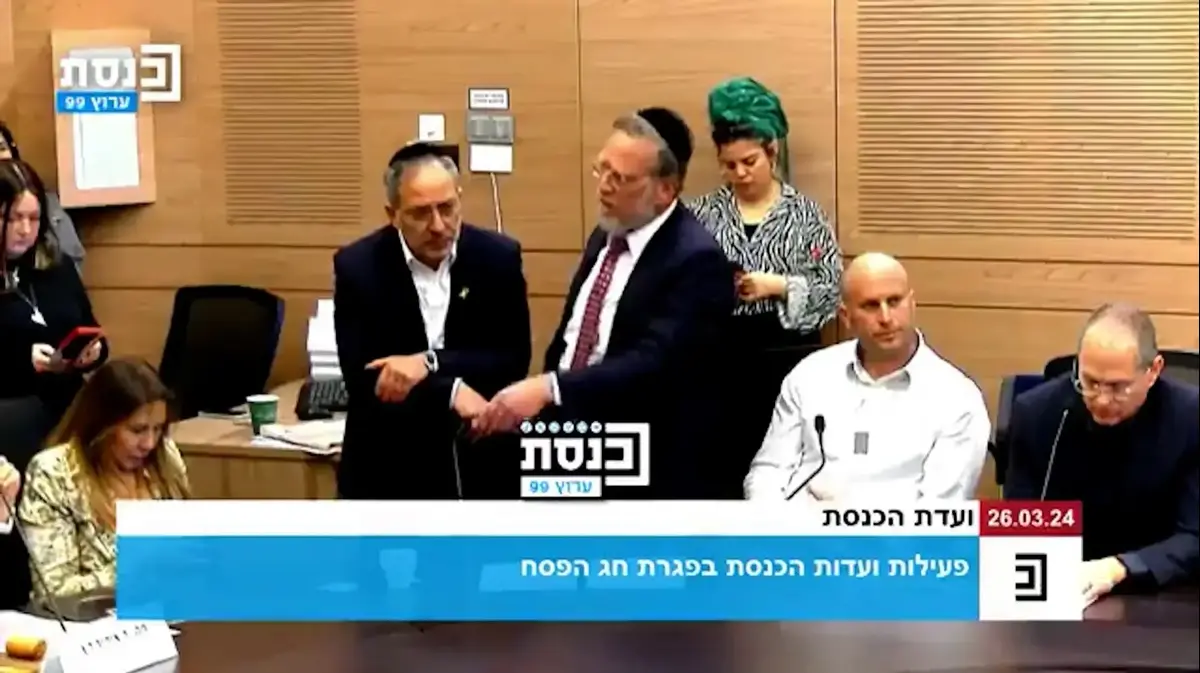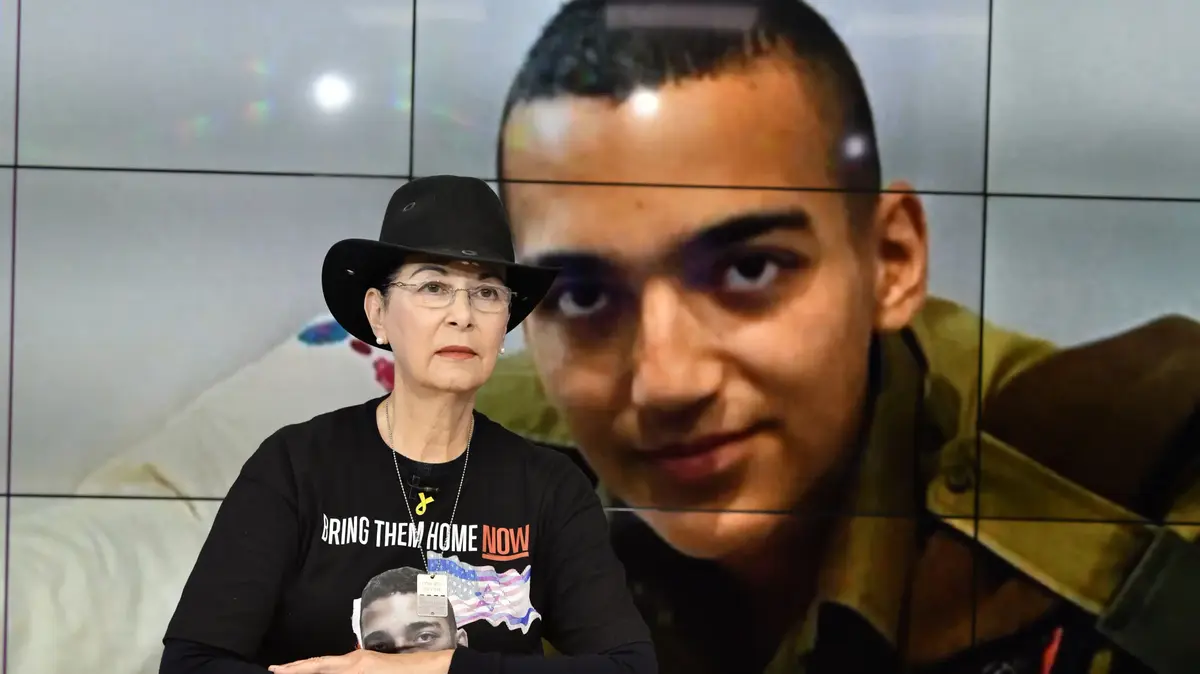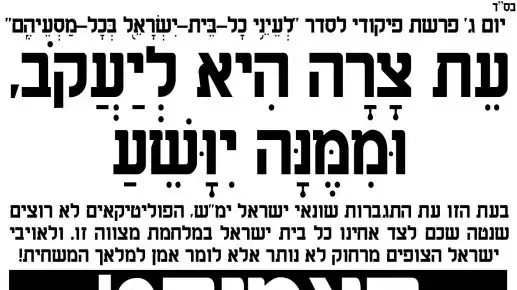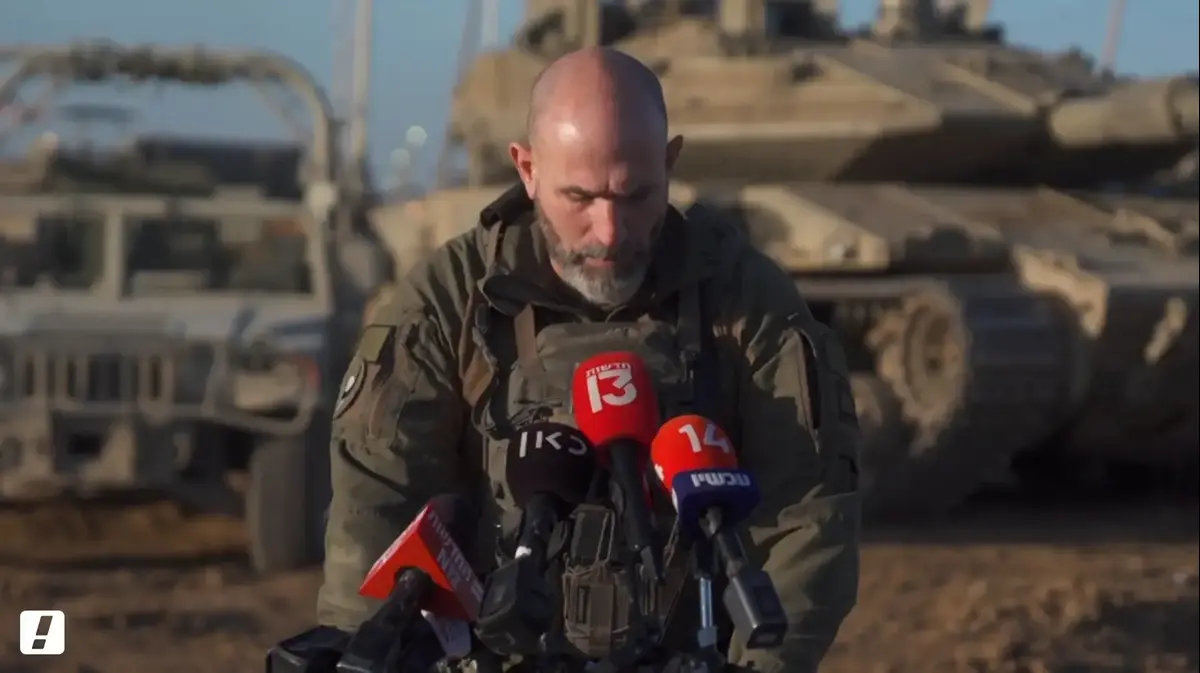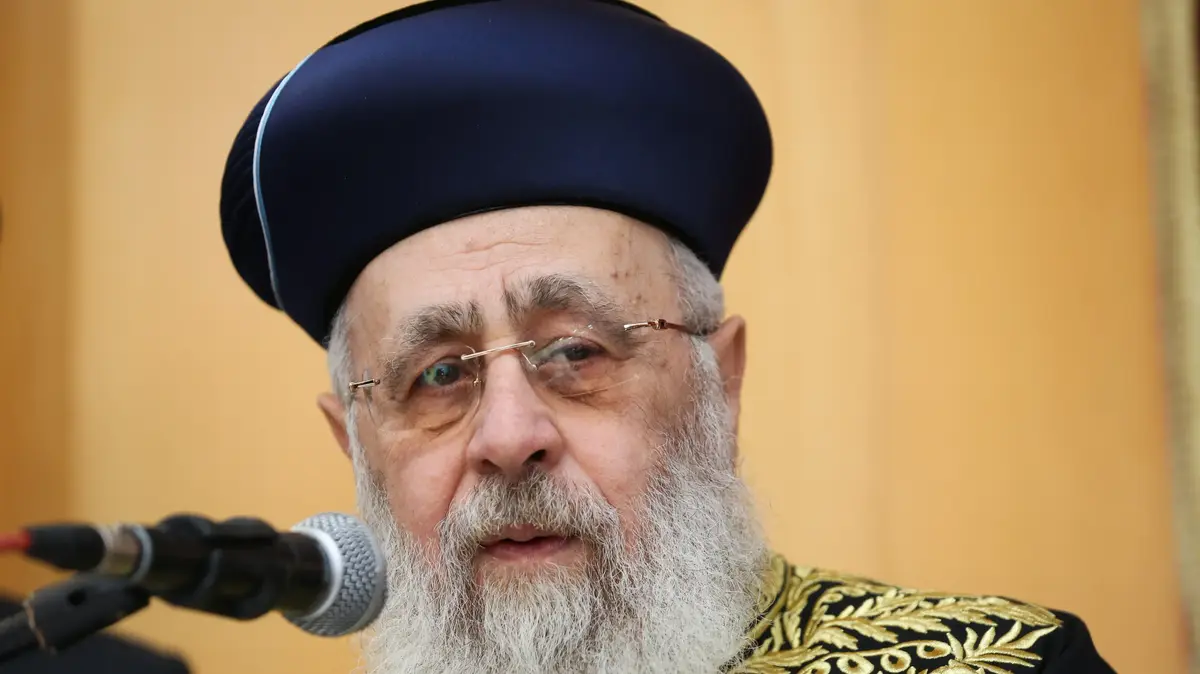To places, high school - leave. The competition has begun in which the investing parent of the team will be crowned - the one who scatters money freely, gives gifts worth thousands of shekels to the elite fighters of the IDF. Love you. Proud of you, souls. Take a watch for 3,500 shekels, also take a branded coat for 700 shekels or Mountain shoes are worth it, and why not also a pampering bathrobe, with the name embroidered next to the unit's emblem.
And after the cynical tone, here are the dry details from a representative sample we prepared for gifts and treats given by parents to soldiers in elite cruisers in the last two years.
In some cases, the gifts were given by various unknown donors, even though the IDF forbade accepting gifts from companies.
In one of the teams in Agoz, the parents collected about NIS 150 from each family for spreads (a pampering meal, usually meat) and choppers during the route.
One of the parents donated brass jackets to all the soldiers, another parent obtained a donation of NIS 20,000 to purchase bags worth NIS 800.
At the same time, they collected an amount of about NIS 400 from the parents for end-of-course gifts and for the shirts that the family members wear in honor of the graduation ceremony.
In total, the parents paid at least NIS 550.
The corresponding team did not get a donation, so its fighters "only" received equal gloves instead of backpacks.
Edva: "The most embarrassing thing is that because in the Paybox group that they opened, the payment is anonymous, to give the parents the feeling that they don't have to pay, so those who did pay shared a screen of the payment transfer, so that everyone can see how much they put in."
In one of the teams of the Givat patrol, they collected 330 shekels from each family during the route for distributions and treats.
At the end of the route, they collected another NIS 500 for distribution and gifts.
In addition to that, the unit gave them large backpacks as a gift, it is not clear who donated them.
A latex shirt cost 18 shekels, so an average family spent close to a thousand shekels.
In the Golani patrol, in different teams, parents collected between 200 and 400 shekels from each family for the beret journey and a few hundred more for the end of the route.
At the same time, parents obtained donations or donated coats, bags, shoes, robes, towels and glasses themselves.
In the Magellan cruise, the parents collected more than a thousand shekels for various gifts along the route.
Also, a competition developed between the parents as to who organizes a deployment at their own expense or hosts the fighters in a more pampering way at their home.
In a cherry blossom patrol in one of the teams, one of the parents purchased watches for all the fighters, each of which cost 3,500 shekels.
The other parents were asked to participate with a symbolic amount of NIS 350 each.
In the same team as well as in another team, a culture of ostentatious display developed, which parent indulges more at the expense of the entire team.
In the pilot course, most of the parents are in contact with the trainees only towards the end of the course.
In some of the courses, hundreds of shekels were collected for gifts to the wing order for the new pilots and commanders.
In "Rigilot" the fighters fly abroad together and help those who are unable to finance a flight alone. There are annual reports in which they collected less money, mainly for music videos, albums and symbolic gifts. Deployments are less common in the course, but at least once the parents collected money and sent a food truck with meats to the pilot flowers.
During a general patrol in one of the teams, the team commander forbade the parents to open a WhatsApp group, because many fighters drop out along the route anyway. A parents' group was opened only towards the end of the route, collected money and purchased coffee kits for the fighters. At the end of the route, each family brought food from home. In the unit, it is customary that while The route arrives for meals in the fighters' kibbutzim or in the private homes of the team members. Parents with means finance expensive catering at their own expense. In at least one case of parents without means, the unit made sure to bring all the food products to the parents' house in advance, to avoid embarrassment for the soldier and his parents.
Standards are hard to meet
Some parents are at a loss when faced with the inflation of indulgences.
"My son is in an elite unit," says Anat (pseudonym, like all the parents' names in the article), supports a unit whose husband is unemployed.
"His team has a concentration of 'Northerners' and there are classes, and it's a horrible part. I feel like I'm at a disadvantage compared to everyone else. The parents are constantly spoiling me with gifts and collecting money from everyone. Once I put 500 shekels. Then they collected a few hundred shekels and started discussions of So what will we buy this time?', but I decided that it doesn't bother me anymore, I'm not participating in it.
• A parent of a fighter
in Team
Agoz
obtained a donation of NIS 20,000 for the purchase of bags worth NIS 800 .
The parents were asked to pay a symbolic amount of 350
"The son told me: 'Mom, you're right. If they're crazy, that's their problem.' , a small thing. But all these delusions, it's something that's not up to our standards. You start a paybox group, of course you write that no one has to pay and that everyone can put as much as they like. But come on, soul, everyone sees that you're dead or not. There are also parents who get All kinds of donations, and so, for example, they bought everyone jackets with embroidery of the unit's insignia.
"There are also such 'clunky' parents who come to every event and make a pampering layout for everyone. They of course upload pictures, and you understand that they have invested thousands of shekels in the most worthwhile meats. They are businessmen and can afford to lose days of work. This is something I cannot afford. There is An event and many mothers and fathers come and make hinga for everyone, and children whose parents have to work are left alone.
"There is also a degree of acceptance between parents in the unit, and those who are the richest and most connected are also in good contact with the commanders. And there are those who host the entire team in the villa and upload pictures of the soldiers from the private pool. Sometimes the mother cooks alone, but most of the time they order equal catering. When the team of My son was close to our living area, it was expected that I would invite everyone to a spread of some 5,000 shekels, but this is not something I can do."
And order something smaller and more modest?
"It's worse than ordering. It's also not something that can happen when I work from morning to evening. These investor parents are of course very proud of themselves, but in practice it creates class."
Between sensitivity and excessive generosity
Hagit, whose son served in another elite patrol, sees things from a different angle and describes a slightly different picture: "The team our son served in was very sensitive. It was actually for the better. There were very wealthy parents in the team who wanted to buy their son a special watch for the end of the route. In a luxury watch with navigation capabilities that costs NIS 3,500. Instead of buying this watch just for their child, they decided to buy it for everyone. They wrote in the group that donations and discounts were obtained for the purpose. They asked each parent to participate in a symbolic amount of NIS 350. In my eyes, this is really considerate. We didn't feel Embarrassed by that. On the contrary, it's a tribute to everyone."
And what did the fighters in the corresponding teams get?
"I don't know, but I don't think there was any tension around it. In the end, there are parents here who invest and give out of a desire to hug the soldiers we all love. I can understand the embarrassment of parents who don't have them. If they wrote that they collect 3,500 shekels per watch, I would have suffocated. But they only asked for 350 shekels, and anyway we were racking our brains over what gift to give our son in honor of finishing the track."
Did the parents collect more money in the group for the layouts?
"No. But one of the rich parents invited the guys to sit, and what he did there and what he gave them was crazy. Each one got a towel with the name and symbol of the unit, and a lot of other treats. He didn't ask the parents to share in the cost of the accommodation, and neither did I I don't feel that anyone expected us to do something like this. In my eyes, this is the beautiful side of our society, that there is consideration on the part of the rich for the common people. But of course, things have to be done with sensitivity."
Anat: "My son is in an elite unit. His team has a concentration of 'Northerners' and there are classes, it's a horrible part. I feel at a disadvantage. The parents are constantly spoiling me with gifts and collecting money, I've already decided that I don't care anymore."
But not everyone has the required sensitivity.
"I personally had a difficult experience with a group of parents on one of the patrols," says Menachem, a father of four sons who serve in elite units.
"There was a feeling of competitiveness in this WhatsApp group - who gives more, who indulges more. They also uploaded pictures of everything. I didn't feel comfortable. It doesn't suit me to be part of a 'look how much I donate' group, so I left the group. Most of the time parents just We gave gifts to everyone at their own expense. This pressure created a situation where one mother decided that she also wanted to give a gift from her, but she didn't have any money so she collected money in a group from the parents. Everyone took pity on her and gave her money so that she could give a gift as if on her behalf."
What is the problem with parents buying a gift for all the soldiers at their own expense?
"In my opinion, the army should prohibit receiving gifts from parents. It should not even be started. It creates pressure on the parents. Because I will not give a big gift, will my son be kicked off the track? Maybe I am not doing enough for him? Such thoughts must not run through the parents' heads. People who don't have abilities, that's why it should be banned."
In the end your son will get less, he won't get an equal bag.
"So he won't accept, what happened? When I was in the service I received gifts from my parents? What nonsense. I didn't receive anything. It hurt me? No. Everyone was uniform. There was no matter of where and where. Because that one, his father gave him watches, so in sociometric ( An evaluation questionnaire that the soldiers fill out for their comrades and affects their chances of remaining in the unit; 11) Will they give us a higher rating?
It's wierd.
There are also people with fancy houses and pools and razors.
So if they hosted everyone and it's 'worth it' to be friends with their son, because he's bursting with money, then their son will be ranked higher than his friends?
"You have to be very careful about this, especially if it's during a route. Even after the route it's problematic, because jealousy may arise between the teams. It should be forbidden to receive gifts from rich parents or from parents who obtained donations from all kinds of unknown sources."
But until that happens, parents find themselves in unpleasant and exhausting situations of disputes within the groups.
So, for example, in another patrol, some parents decided to buy a gift for the soldiers in preparation for the beret campaign.
"These are parents who volunteered to be in contact with the commander ahead of the trip," says Edva, whose son serves in a patrol.
"Those parents said they would keep us updated, then suddenly without any discussion they published a message with a link to Paybox and wrote, 'We are all very excited for the trip and the beret ceremony, so each will pay 400 shekels for gifts and a spread.' The children want it. The gift they chose is really unnecessary. The children get something similar from the army anyway, and even so this clothing accessory remains in the closet."
Hagit: "One of the wealthy parents in the unit invited the guys to sit. What he did there and what he gave them was crazy. He didn't ask to share in the cost of hosting, and I don't feel like anyone expected us to do something like that. In my eyes, that's the beautiful side of our company."
When brave parents began to express resentment that it was a high amount and an unnecessary gift, it was clarified that the order had already been placed and was in production.
Adwa: "They started writing messages in the group that parents did it innocently and with good intentions, so let's cheer them on, and that they had no choice because the corresponding team also received the same accessory and there should be uniformity. The parents who objected asked that the production be stopped or that whoever made the mistake pay for it. But they didn't stop.
"All this exhausting discussion took place within a WhatsApp group, where what you see is half a person's name. You don't know how to associate the name with the son's friend from the team, and you actually have no idea who is standing in front of you. After much debate, I realized that I am not interested in what happens in the team parallel. In the end we paid a quarter of the amount they asked for, not because I can't pay, but because it just doesn't make sense that people I don't know are forcing me to pay hundreds of shekels for a gift for my son, which I don't really want to give him. After we hadn't seen him for almost a month, the son He told me: 'Mom, don't you dare buy this'."
What actually happened, was all the money collected?
"Yes, there were parents who paid more. The most embarrassing thing is that because the Paybox group is anonymous, to give parents the feeling that they don't have to pay, so parents who did pay shared a screenshot of the transfer of the payment in the WhatsApp group. So that everyone could see that they paid. What was saddest was that parents also of a new immigrant soldier, who we know have no money, paid the 400 shekels and shared a screen. My heart just hurts for people who don't understand the conduct. We fought for them, among other things, but they actually paid.
"There were parents who definitely paid more than NIS 400, but at least they did it quietly and didn't share a screen with everyone. This whole situation is very unpleasant. It's embarrassing. I told my son to know that he was getting a gift that we didn't pay for, and not to talk about it with No one so that an unpleasant atmosphere does not arise between them. I feel that a culture has been created here of the need to demonstrate to the outside how much the parent invests in the child."
And if this whole process was done by agreement, after consultation and vote of the parents?
"Consent is not real. Parents are unable to refuse out of embarrassment and shame. I thought about leaving the group, but the invitation to the ceremony is sent there and the children's photos are sent there. I wrote a message to the Central Committee - something I have never done before, and I have older sons with military experience - with Streamlining proposal: open a distribution list where only he can send information and photos, then those who want to will stay in the WhatsApp group and those who don't fit him will be updated on the distribution list.
"I also asked him to raise the issue of gifts to the higher levels, that the army concentrate on this story. I understand that parents have a need to give. I understand that not everyone is like me, so we need something symbolic and to make it very clear that if there is a parent who cannot pay, so that he does not feel uncomfortable, Because there is always someone who gives more. If the army doesn't stop the business, what will happen at the end of the route - will 800 shekels be charged?"
"Mom, what is this for?"
Adva is also well aware of the issue from her adult sons, one of whom served in the same patrol, and where a particularly delusional proposal came up in the parents' group.
"It was during the Corona period, and the parents could not make it to the end of the beret campaign, so one of the parents wrote that he wanted to raise a helicopter, worth at least NIS 20,000, with a sign of encouragement. We waited to hear reactions from the other parents, and then the first parent who dared to oppose the idea came out. He He wrote it very gently. We said we were joining him. We announced that we could pay this amount, it came out to be something like 200 shekels for the family, but we prefer to donate it to individual soldiers in the team or to something else that has meaning.
"In the end, they decided to buy gifts. One of the leading parents decided to buy everyone Ray-Ban sunglasses and a phone case. When the son got it, he said to me: 'Mom, what is it for? We all have sunglasses, we have nothing to do with it, It's simply unnecessary.' Then he looked at the correspondence in the group and told me that the parents who led the idea of the gift are the ones who are unable to pay. They simply put themselves in very stressful situations. In the end, we reluctantly paid 200 shekels for the unnecessary gift, because After resisting the helicopter we no longer had the strength to resist it either.
"By the way, they were also showered with gifts during the route. One of the parents had means, so they donated all kinds of things. I don't know where they got the donations, but they bought them mountain shoes, the best quality bathrobes with embroidery of the name, coats. It seemed that the parents They are looking under the embankments for something to buy them."
Who dares to complain?
"With us, everything is done with good intentions," says another father to a fighter in one of the patrols.
"These are parents who strive and work very hard for everyone, and precisely because of this - it's embarrassing. Because what, you're going to complain? With us, one of the parents obtained a large donation and asked the boys what they wanted. They chose an expensive bag. In the end, it turned out that there was a lack of money, so they collected something from all the parents Like NIS 400. I didn't intend to invest such an amount, but because a debt suddenly arose, I transferred the payment they asked for. In general, I don't like the fact that we don't have direct contact with the census, but only with the parents defined as a 'committee'. I wouldn't close the WhatsApp groups because They are important, especially in an emergency.
"But what happens in these groups in non-emergency situations is quite embarrassing, and even though everyone has good intentions, it creates discomfort. During the discussions, one of the parents suggested charging 700 shekels to continue, so that we could treat them to more deployments as fighters. He wrote, of course, that those who cannot afford He will pay himself anonymously and it is possible to give a lower amount. I remained silent. Several parents gently wrote that it was an excessive amount, and the offer declined. In the end, even if you open an anonymous Paybox group, the group administrators know how much everyone paid. This is also dishonesty. No one I want to be in this situation."
An IDF spokesperson stated that "cases of the type described in the article are contrary to IDF orders.
According to the order, there is an absolute prohibition on receiving donations for soldiers, including through gifts other than through the procedure anchored in the orders, which includes submitting an orderly application to the association for the soldier and confirming the donation with the professional officials in the personnel department.
The IDF will work to refine those orders among all units and reduce cases of this type."
were we wrong
We will fix it!
If you found an error in the article, we would appreciate it if you shared it with us

